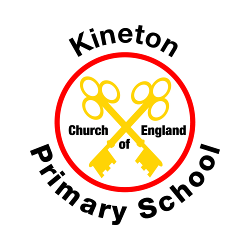
Kineton C of E Primary School
Pupil Premium
Pupil Premium is funding to improve education outcomes for disadvantaged pupils in schools in England. Evidence shows that disadvantaged children generally face additional challenges in reaching their potential at school and often do not perform as well as other pupils. Primary schools receive £1345 for pupils who are eligible for free school meals, or have been eligible in the past 6 years, pupils who have been adopted from care or have left care and pupils who are looked after by the local authority. There is also a Service Pupil Premium which is not based on disadvantage, but combined into Pupil Premium payments to make it easier for schools to manage their spending. Schools get £310 for every pupil with a parent who is serving in HM Forces or has retired on a pension from the Ministry of Defence.
School leaders are best placed to assess their pupils’ needs and use the funding to improve attainment, drawing on evidence of effective practice. It is up to school leaders to decide how to spend the Pupil Premium. It is not allocated per pupil, but as a lump sum. In addition, schools do not have to spend pupil premium so it solely benefits eligible pupils. We can use it wherever we identify the greatest need. As an evidence-informed school, our engagement with educational research offers us a valuable tool for understanding which practices and programmes are most likely to deliver the greatest impact.
Even though all children in Reception, Year 1 and Year 2 receive a free school meal, in order for your child to benefit from extra help with funding, equipment and extra support, you MUST still register for free school meals. Even if your child has a packed lunch they can still benefit from this extra funding! Parents of children in Key Stage 2 should also apply.
ARE YOU CLAIMING ANY OF THE FOLLOWING BENEFITS?
- Income Support.
- Income-based Jobseeker’s Allowance.
- Income-related Employment and Support Allowance.
- Support under Part VI of the Immigration and Asylum Act 1999.
- The guaranteed element of Pension Credit.
- Child Tax Credit (provided you’re not also entitled to Working Tax Credit and have an annual gross income of no more than £16,190).
- Working Tax Credit run-on – paid for 4 weeks after you stop qualifying for Working Tax Credit.
- Universal Credit – if you apply on or after 1 April 2018 your household income must be less than £7,400 a year (after tax and not including any benefits you get).
We are required to publish online our strategy for how we intend to use this funding. Evidence suggests that Pupil Premium spending is most effective when schools use a tiered approach, targeting spending across 3 areas, with a particular focus on teaching.
- High Quality Teaching: investment in professional development, training and support for early career teachers, along with recruitment and retention. Ensuring an effective teacher is in front of every class, and that every teacher is supported to keep improving, is the key ingredient of a successful school and is rightly the top priority for our Pupil Premium spending.
- Targeted academic support: evidence consistently shows the positive impact that targeted academic support can have, including on those who are not making good progress, or those who have been disproportionately impacted by the effects of the pandemic. Considering how classroom teachers and teaching assistants can provide targeted academic support, such as linking structured small group interventions to classroom teaching and the curriculum is an essential ingredient of our effective Pupil Premium strategy.
- Wider strategies: the most significant non-academic challenges to success in school, including attendance, behaviour, and social and emotional support, which also may negatively impact upon academic attainment.
If you’d like to find out more about free school meals please visit the Warwickshire County Council website www.warwickshire.gov.uk/freeschoolmeals. Alternatively, please come into school and either Mrs Richardson (School Administrative Assistant) or Mrs. Pollard (Headteacher) would be pleased to help you with your application.